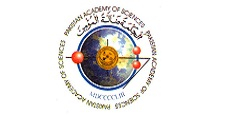Location
Throughout the human history there have been several pandemics that caused huge loss to humanity. Most famous of these are 14th century black death (estimated 75-200M deaths), 1918 Spanish flu (~50M), 1957- 58 Asian Flu (estimated 2M), 1968 Hong Kong flu (estimated 1M), 2009-10 Swine flu (~150,000-500,000) etc. Responding to or planning for a pandemic is a complex process. Most important global pandemic preparedness indicators includes prevention for the emergence or release of potential pathogen, early detection and assessing their expansion, emergency response, global risk mitigation, strong healthcare system, commitment to improving national capacity in compliance with the global needs, and overall assessment of country’s vulnerability to risk/biological threat. COVID-19 has proved that more work needs to be done for preparedness and countermeasures of possible pandemics. At the same time, in the era of information technology, one has to use social media for the good of humanity. But unfortunately, this is being counterproductive in current pandemic. In contrast to temporally or geographically bound calamities, a pandemic will spread throughout the world within a month or year and will affect communities of all sizes and compositions. In the current era of urbanization, climate change, frequent national/international travel, migrations and international mass displacements; the world will continue to face disease outbreaks with the potential to become pandemic.
These outbreaks will challenge global health security due to the fact that most of the countries are ill prepared for such epidemics/endemics. According to the assessment of Global Health Security Index (2019) most countries even lack basic health systems and capacities critical for emergency response. In addition, coordination and training are inadequate among veterinary, wildlife, and public health professionals and policymakers. The situation is further worsening by the fact that more than half countries of the world are facing increased political and security risks resulting in compromised capability to encounter biological threats. Furthermore, propagation of false information across media regarding COVID-19 has translated into an Infodemic which necessitates robust approaches using ICT technologies and social media for diffusing correct and authentic information. The recent outbreak (COVID-19) has served as whistle blower for governments and health organizations globally to allocate resources for pandemic preparedness and encourage scientific research to tackle this very important issue.
WHO data (from the last about 25 years) reports a number of disease outbreaks in different parts of the world that need emergencies preparedness and rapid response. Most notable among them are COVID- 19, SARS-CoV, MERS-CoV, Ebola, Zika, Lassa fever, Rift Valley Fever, Chikungunya etc. In response to these disease outbreaks, several countries have strengthened essential capacities like diagnostics, information sharing, treating patients, disease surveillance and monitoring, safety guidelines and preparedness for health hazards. However, the costs and effectiveness of operating disease outbreak surveillance systems is one of the areas yet to be assessed. Pandemic preparedness and international health regulations are being addressed in SDGs 2015: SDG 3 (target D) that emphasizes on “early warning, risk reduction and management of national and global health risks”. However, the progress in epidemic/pandemic preparedness has rarely been seen through the lens of Sustainable Development Goals. In addition, there are gaps for inter-sectoral and multidisciplinary research to provide a number of practical tools to be applied in the field.
AIMS & OBJECTIVES
Objectives and outcomes of the proposed project
- To share lessons learnt among the participating countries and scientists about the Covid-19 and its relation to sustainable development goals
- Strategy of the current issues, challenges while facing pandemics
- Increasing awareness about preparedness of the future pandemics
- A multiple theme conference about the pandemics and SDGs which will be based on interactive learning, group work, poster competitions, lectures, presentations etc.
- Use of emerging technologies like Artificial Intelligence Applications in Tracking Health Behaviors During Disease Epidemics
- Encouraging the use of ICT technologies and social media for tackling the spread of misinformation regarding different aspects of the pandemic
- Pandemic: Bio-safety & Biosecurity and Ethics
- Raising awareness about the importance of the knowledge sharing and open science
- Prioritizing and promoting multi-sectoral approaches for promoting environmental health and studying zoonosis under the lens of one health
THEMES OF THE WORKSHOP
- SDGs and Pandemics
- Pandemics preparedness, One Health: Lessons Learnt
- How to counter Infodemics: Role of Scientists
- Role of Complementary medicine in Pandemics
- Diagnosis, Critical care; Vaccines and herd immunity
FINANCIAL SUPPORT
International participants whose submitted abstracts are accepted through review will participate virtually, please note more information will be released soon from the AASSA secretariat. In addition, local expenses (accommodation and meals) up to 4 nights for the local speakers will be covered by PAS. We also welcome anyone who wishes to participate in this workshop with her / his own sponsorship.
FIELD TRIP
Rawal Dam & Lake View Park, Pakistan Monument and Its Museum, Lok Virsa Museum, Shah Faisal Mosque Islamabad.
VENUE OF THE WORKHOP
Pakistan Academy of Sciences, 3-Constitution Ave., Islamabad, Pakistan
ACCOMODATION
PAS Fellow Lodge & COMSTECH Guest House Islamabad, Pakistan

